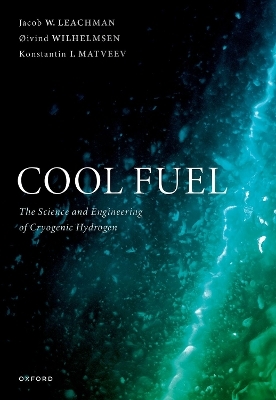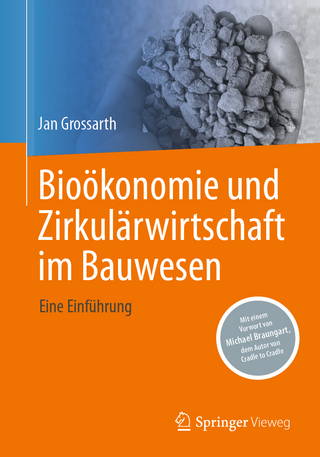
Cool Fuel
Oxford University Press (Verlag)
978-0-19-893666-4 (ISBN)
- Noch nicht erschienen (ca. Januar 2025)
- Versandkostenfrei innerhalb Deutschlands
- Auch auf Rechnung
- Verfügbarkeit in der Filiale vor Ort prüfen
- Artikel merken
Hydrogen, the first and most abundant element in our universe, is an essential zero-carbon fuel in humanity's race against catastrophic climate change. However, very few have access to cryogenic hydrogen systems to gain the necessary experience to contribute.
This textbook is written as an invitation for scientists and engineers with experience in thermodynamics, fluid mechanics, and heat transfer to engage in this race for the future via cryogenic hydrogen research and development.
It begins with the history of hydrogen and cryogenics to create a context for current needs. Next, the text builds a foundation for hydrogen's unique quantum mechanical effects on bulk thermophysical properties, and how to choose from and utilize available property models. Practical methods are presented for sensing and conversion between the quantum mechanical forms.
Foundational aspects of hydrogen liquefaction and cooling in recuperative and regenerative cycles are presented next. Elements of hydrogen transfer phenomena, including recently developed two-phase flow correlations and thermoacoustic instabilities are discussed. An extensive analysis of liquid hydrogen storage system options is presented.
The final chapter of the textbook overviews the Cool Fuel School, a hands-on cryogenic hydrogen training course that helps readers develop a new system design and associated cryogenic hydrogen safety plan. Readers of this book should gain confidence in the foundational aspects of cryogenic hydrogen science and engineering.
Jacob Leachman is a Professor in the School of Mechanical and Materials Engineering at Washington State University (WSU) and founding Director of the Hydrogen Properties for Energy Research (HYPER) laboratory. He earned a B.S. degree in Mechanical Engineering in 2005 and a M.S. degree in 2007 from the University of Idaho. His master's thesis has been adopted as the foundation for hydrogen fuelling standards and custody exchange, in addition to winning the Western Association of Graduate Schools Distinguished Thesis Award for 2008. He completed his Ph.D. in the Cryogenic Engineering Laboratory at the University of Wisconsin-Madison in 2010. In 2018 he received the Roger W. Boom Award from the Cryogenic Society of America. Øivind Wilhelmsen is a Professor at the Norwegian University of Science and Technology, where he is responsible for the Thermodynamics group in the Department of Chemistry. He holds an Msc. and a PhD in physical chemistry and has worked for many years in the applied research institute SINTEF Energy Research with technologies for the liquefaction of hydrogen. His research spans from a fundamental, molecular description of hydrogen and quantum mixed refrigerants to the development of more energy efficient hydrogen liquefaction processes and process equipment. He has been endorsed by several national and international awards such as the Hydrogen Prize, the Prigogine Prize, the EFCE Excellence Award in Thermodynamics and Transport Properties and the National Award for Young Outstanding Researcher Talents within Natural Sciences in 2018. Konstantin Matveev earned a PhD in Mechanical Engineering from Caltech in 2003 and, prior to that, BS and MS degrees in Applied Physics from the Moscow Institute of Physics and Technology. He carried out post-doctoral research at Los Alamos National Laboratory and worked as a Senior Hydrodynamicist for Art Anderson Associates. He is currently a professor in the School of Mechanical and Materials Engineering at Washington State University and a Fellow of the American Society of Mechanical Engineers. His research work spans liquid hydrogen systems, multiphase flow, thermoacoustics, advanced marine and aerial vehicles, and computational fluid dynamics.
| Erscheint lt. Verlag | 1.1.2025 |
|---|---|
| Zusatzinfo | 112 figures |
| Verlagsort | Oxford |
| Sprache | englisch |
| Maße | 171 x 246 mm |
| Themenwelt | Naturwissenschaften ► Biologie ► Ökologie / Naturschutz |
| Naturwissenschaften ► Physik / Astronomie ► Thermodynamik | |
| Technik ► Elektrotechnik / Energietechnik | |
| ISBN-10 | 0-19-893666-4 / 0198936664 |
| ISBN-13 | 978-0-19-893666-4 / 9780198936664 |
| Zustand | Neuware |
| Haben Sie eine Frage zum Produkt? |
aus dem Bereich


